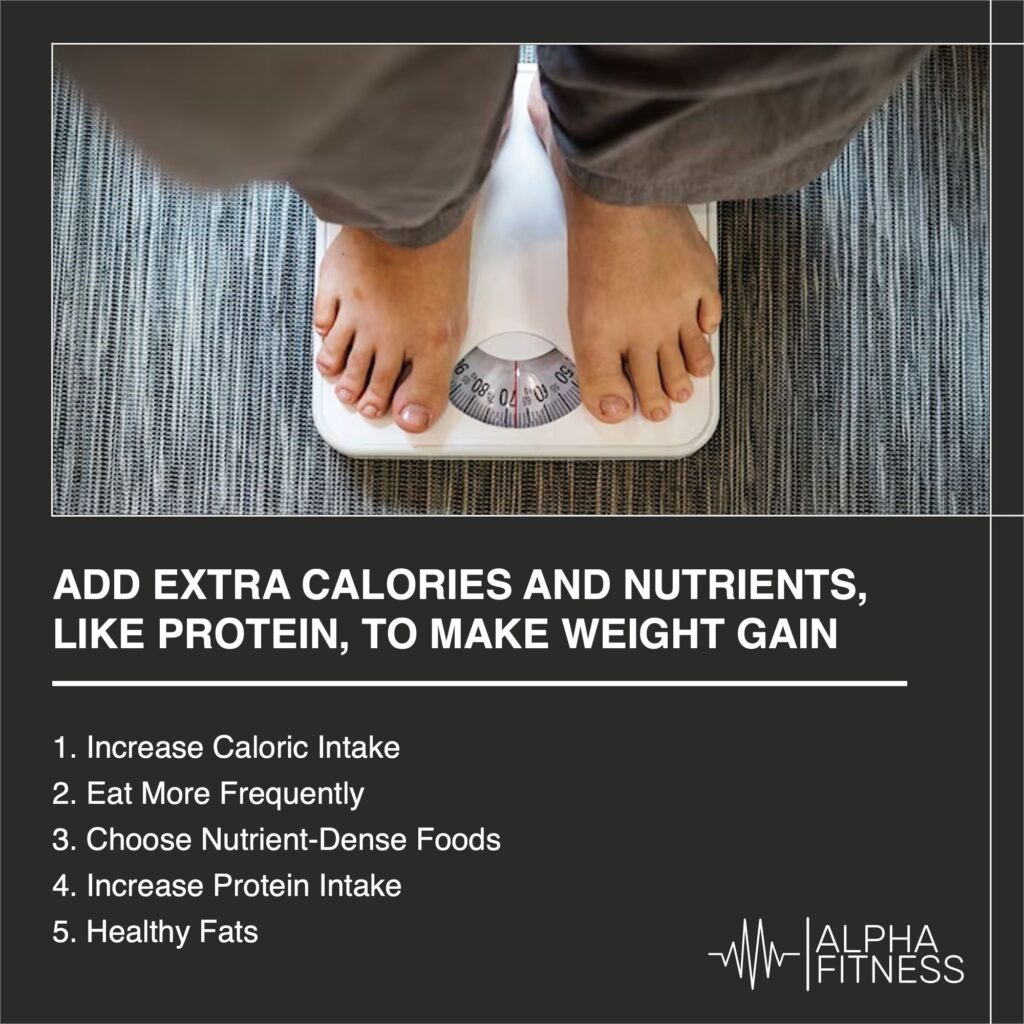
Below is a list of useful links:
- Eat cheese to gain weight
- Steak to put on weight
- More pushups lead to weight gain
- Smoothies can be a healthy way to gain weight
- Sugar consumption is linked to weight gain
If you are looking to gain weight and increase your calorie and nutrient intake, there are several ways to do so safely and effectively. Keep in mind that it’s important to gain weight in a healthy manner, focusing on muscle mass and overall well-being rather than just increasing body fat. Here are some tips to help you add extra calories and nutrients to your diet for weight gain:
Increase Caloric Intake:
Consume more calories than your body burns in a day. This means eating more than your maintenance calories. You can calculate your daily caloric needs using online calculators or consult a registered dietitian.
Eat More Frequently:
Aim for five to six smaller meals and snacks throughout the day rather than three large meals. This can help you consume more calories without feeling overly full.
Choose Nutrient-Dense Foods:
Opt for whole, nutrient-dense foods that provide essential vitamins and minerals. Include lean proteins, whole grains, fruits, vegetables, and healthy fats in your diet.
Increase Protein Intake:
Protein is essential for muscle growth and repair. Include sources of lean protein in your meals, such as poultry, fish, lean meats, dairy, legumes, and plant-based proteins like tofu and tempeh.
Healthy Fats:
Incorporate healthy fats like avocados, nuts, seeds, and olive oil into your meals. These are calorie-dense and provide essential nutrients.
High-Calorie Snacks:
Snack on calorie-dense foods like nuts, dried fruits, trail mix, and yogurt. These can add extra calories and nutrients throughout the day.
Smoothies and Shakes:
Make high-calorie smoothies or shakes with ingredients like whole milk, yogurt, bananas, peanut butter, and protein powder. These can be a convenient way to increase your calorie and protein intake.
Strength Training:
Combine your dietary changes with a strength training or resistance exercise program. Building muscle can contribute to healthy weight gain.
Stay Hydrated:
Ensure you drink enough water to support your body’s functions, but avoid excessive consumption right before or during meals, as it may fill you up.
Consult a Dietitian:
If you have specific dietary goals or health concerns, it’s a good idea to consult with a registered dietitian. They can provide personalized guidance and meal plans tailored to your needs.
Remember that while weight gain is the goal, it should be achieved in a healthy and gradual manner. Rapid or excessive weight gain can have negative health consequences. Monitor your progress and make adjustments as needed. Additionally, if you have any underlying medical conditions or concerns about your weight, consult with a healthcare professional for guidance and support.



